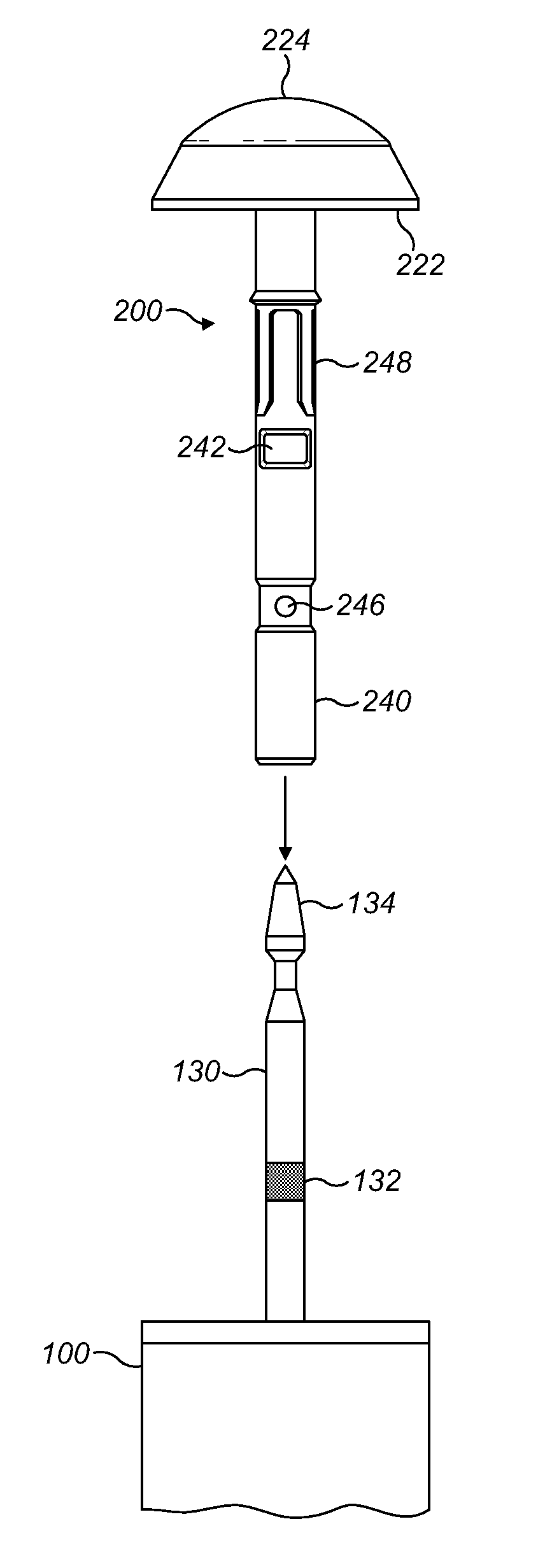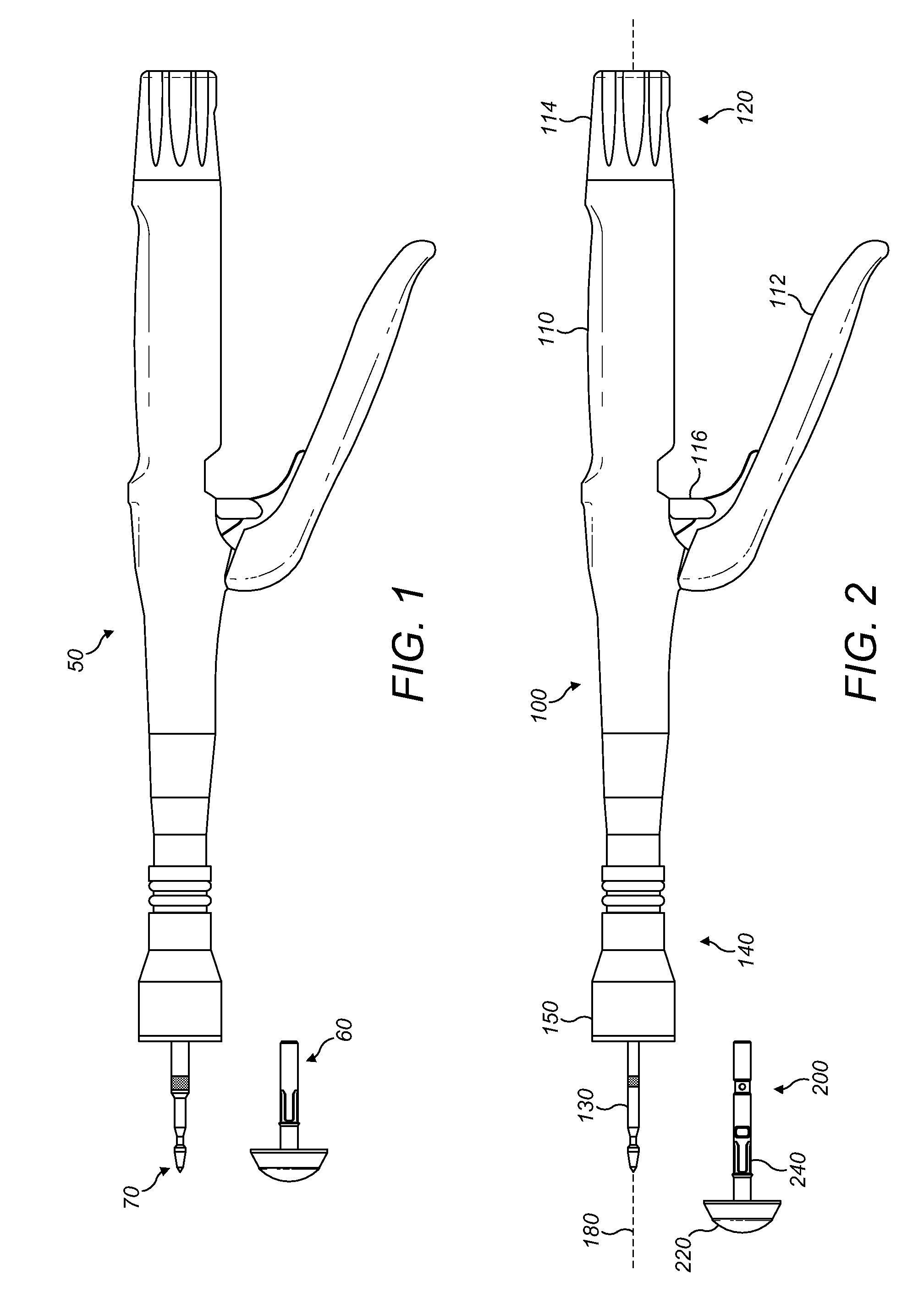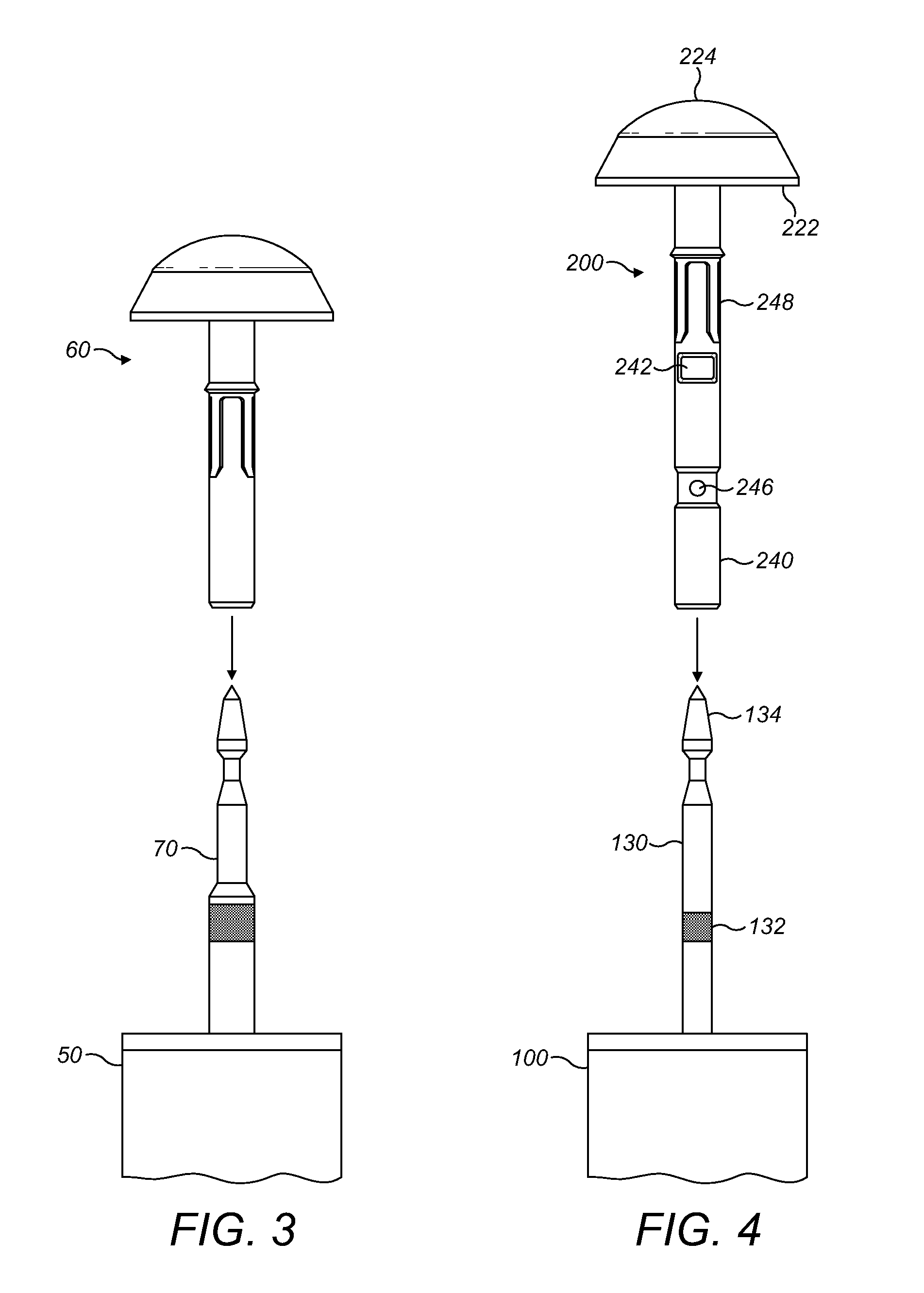Method and apparatus for forming stoma trephines and anastomoses
a technology of anastomoses and hollow organs, applied in the field of hollow organ hollow organ anastomoses and hollow organ anastomoses, can solve the problems of restricted docking of elements, hernia formation, and extremely difficult to perform technically, and achieve the effect of convenient manipulation
- Summary
- Abstract
- Description
- Claims
- Application Information
AI Technical Summary
Benefits of technology
Problems solved by technology
Method used
Image
Examples
example 1
Anterior Perineal PlanE for Ultra-Low Anterior Resection of the Rectum (the APPEAR Technique)
[0189]Fourteen patients were enrolled, 7 with neoplasia, 5 with ulcerative colitis, and 2 with traumatic rectal damage. Patients were evaluated preoperatively, and at a median of 2 years after surgery.
[0190]Nine of 14 patients underwent ileostomy reversal and were followed up for a minimum of 1 year, with 1 patient awaiting closure. Four patients had not yet been considered for ileostomy reversal due to anastomotic perineal fistulae. Transient sexual dysfunction was noted in 3 of 14 patients, but no urological problems occurred.
[0191]When the APPEAR procedure was performed for neoplasia or trauma, postoperative median Wexner continence score was 5 (range 0-8, n=6), with a median defecation frequency of 3 (range 1-8 / day). All cancers were completely excised with no local recurrence. Following APPEAR with restorative proctocolectomy for ulcerative colitis, median Wexner continence score was 2 ...
example 2
Stapled Mesh stomA Reinforcement Technique (SMART)
[0193]Parastomal hernias (PH) are frequent with a high morbidity. Three randomised controlled trials showed that mesh reinforcement significantly reduced their incidence. The techniques however were time consuming, difficult to perform laparoscopically and relied on manual stretching of the trephine. SMART obviates these problems.
[0194]SMART uses the stapler apparatus of the invention to create a precise trephine in the posterior rectus sheath and peritoneum and simultaneously fixes mesh subperitoneally and circumferentially to the trephine. Stretching is minimised. 9 patients (M:F 2:7, median age 55 yrs range 24-77) at high risk of PH and in whom randomisation in a controlled trial was contraindicated underwent SMART (7 open: 2 laparoscopic).
[0195]There was no post-operative (30 days) morbidity related to stoma formation. All stomas functioned satisfactorily within 48 hours. One patient developed intestinal obstruction after hospita...
PUM
| Property | Measurement | Unit |
|---|---|---|
| length | aaaaa | aaaaa |
| length | aaaaa | aaaaa |
| length | aaaaa | aaaaa |
Abstract
Description
Claims
Application Information
 Login to View More
Login to View More - R&D
- Intellectual Property
- Life Sciences
- Materials
- Tech Scout
- Unparalleled Data Quality
- Higher Quality Content
- 60% Fewer Hallucinations
Browse by: Latest US Patents, China's latest patents, Technical Efficacy Thesaurus, Application Domain, Technology Topic, Popular Technical Reports.
© 2025 PatSnap. All rights reserved.Legal|Privacy policy|Modern Slavery Act Transparency Statement|Sitemap|About US| Contact US: help@patsnap.com



